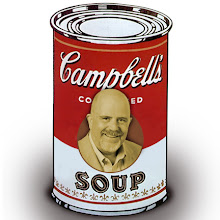When faced with a tragedy, most men want to withdraw within themselves. For me, the illness and subsequent death of my oldest son, Andrew, nearly 20 years caused me to pull within myself. In
Hessisch Oldendorf AS, Germany, it was hard to tell people what I was feeling after hearing the news that my son had
Trisome 18 and a short life span ahead of him.
Are hospital grief counselors discovering the merits of
therapeutic blogging? In an
article in the San Antonio Express News, writer Debra
Skoddack chronicles the life of
Granton Bayless, a 14-month old baby with severe combined immunodeficiency or "bubble boy" disease. Through
blogging,
Bayless' parents can update the family on his accomplishments or setbacks.
"You know, a doctor tells you that there is not enough oxygen in your son's body, you get hit with a ton of bricks," Daniel Bayless, Granton's father, said in the article. "You man up, you swallow it up and then you have to call your parents, your grandparents and tell them and they get hit with a ton of bricks. You try to be strong for everyone."
Like Daniel Bayless, I tried to remain stoic through the ordeal of dealing with my son's illness, waiting for a relocation to the U.S. so that American military doctors could help care for him and a job as a public relations professional. It wasn't until I got my orders that I was able to write about it in a "au revoir" piece as the editor of the base newspaper and share the pain and tragedy of his illness.
The power of the blogosphere is that not only does it help influence people's decisions about things, but it allows those in pain to share their thoughts with friends and loved ones. In Granton's blog, there have been over 350,000 visitors to the web site. It has given hope to other parents who have similar pediatric illnesses. And, it allows those who are family to stay updated and continue their prayers for the parents and their ailing child.















